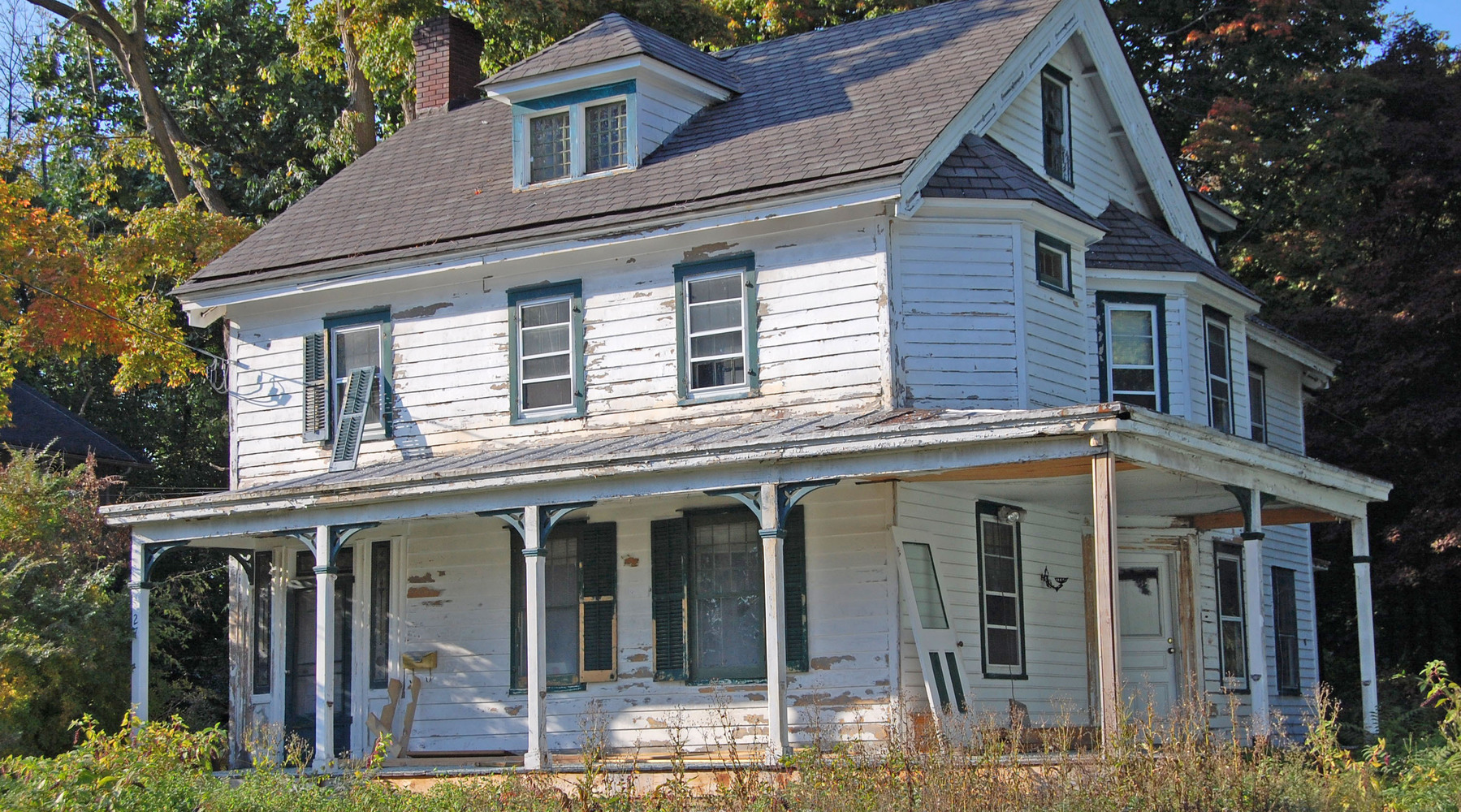Comprehensive Guide to Buying Unoccupied Real Estate: Tips, Strategies, and Expert Advice
This comprehensive guide provides detailed insights into buying unoccupied real estate, covering everything from locating vacant properties to legal considerations and renovation planning. Learn expert strategies to identify, evaluate, and acquire these assets effectively, maximizing your investment potential while minimizing risks. Whether you're a first-time buyer or a seasoned investor, this article offers valuable tips to navigate the complexities of purchasing unoccupied properties successfully.

Comprehensive Guide to Buying Unoccupied Real Estate: Tips, Strategies, and Expert Advice
Investing in unoccupied properties can be a smart move for those looking to expand their real estate portfolio or find affordable housing options. These properties are typically owned by banks, government agencies, or financial institutions and are often sold at discounted prices. However, purchasing such properties requires careful planning, extensive research, and a clear understanding of the legal and logistical aspects involved. This detailed guide aims to provide aspiring buyers with essential insights on how to locate, evaluate, and acquire unoccupied real estate successfully.
Unoccupied properties are distinct assets within the real estate market. Unlike occupied homes that are actively lived in, unoccupied properties are essentially vacant and may have been abandoned, foreclosed, or repossessed. Because these properties are usually off-market or rarely advertised publicly, identifying them can be quite challenging. Nevertheless, with the right approach and thorough investigation, buyers can uncover hidden opportunities that offer significant financial advantages.
Understanding the Nature of Unoccupied Properties
Unoccupied properties encompass a wide range of scenarios. They can be homes left vacant due to foreclosure, properties owned by banks pending sale, or abandoned structures due to neglect or hardship. Recognizing the type of unoccupied property you're interested in is crucial because each category may have different legal processes and considerations. For instance, bank-owned homes often come with auctions, while abandoned properties might require negotiations with individual owners or local authorities.
Initial Steps: Exploring Local Neighborhoods
The most effective initial step in your search is to explore neighborhoods where you’re interested in purchasing. Take time to walk or drive around potential areas, spotting vacant or neglected homes. Look for visual signs indicative of abandonment, such as broken windows, overgrown gardens, peeling paint, or accumulated debris. These signs may suggest the property is unoccupied, but it's critical to differentiate between temporary absentee owners and truly abandoned properties.
Pay attention also to structural issues that might not be immediately obvious, like foundation problems or roof damage. Documenting these observations can help you determine which properties are worth pursuing and plan for potential renovation costs. Remember, properties with visible neglect can often be purchased at significantly reduced prices, making thorough visual inspection a valuable first step.
Engaging with Local Residents and Service Providers
Another vital source of information comes from local residents and service providers. Delivery drivers, postal workers, and maintenance personnel often have firsthand knowledge of which homes are unclaimed or appear abandoned. Developing a good rapport or simply asking around can yield valuable leads on unoccupied properties that are otherwise not listed publicly.
Additionally, visiting the county records office or local government agencies can help you access ownership records, liens, and property histories. These public records are essential for verifying ownership status, identifying properties involved in foreclosure proceedings, or flagged for abandonment.
Keep an eye on government and bank auction schedules, where repossessed properties are often sold at auctions or through online platforms. Banks can also provide information on their foreclosed assets that are available for sale, often at favorable prices. Participating in these auctions requires preparation—understanding the bidding process, setting a limit on your budget, and doing due diligence beforehand.
Partnering with Real Estate Professionals
Experienced local real estate agents and brokers possess invaluable knowledge of the unoccupied property market. They are well-connected with property owners, banks, and auction houses. By working with real estate professionals, you gain access to off-market listings and insights into properties that fit your budget and preferences.
Realtors can also guide you through the legal complexities associated with purchasing unoccupied properties, such as title searches, liens, and permits. Their expertise can streamline the buying process, reduce risks, and help you secure the best deals.
Monitoring Ownership and Legal Status
Keeping track of property owner statuses is essential, especially if you're interested in direct negotiations with owners. For instance, if a property’s mortgage is in default, it may be heading toward foreclosure, making it a potential bargain. Public records and property reports can inform you about the current legal status, liens, or encumbrances that might affect your purchase.
Proactively reaching out to owners or attending foreclosure auctions can sometimes allow you to acquire the property before it officially hits the market, but this approach requires thorough research and legal advice to ensure compliance with regulations.
Financial Considerations and Budgeting
Before making a purchase, it’s vital to evaluate your financial readiness. Determine your total budget, including the purchase price, closing costs, and anticipated renovation expenses. Securing pre-approval for a loan or mortgage can give you a clearer picture of your buying capacity and strengthen your offers.
Always factor in additional costs such as property taxes, insurance, and maintenance fees. Remember that purchased abandoned or vacant properties may require extensive repairs—plumbing, electrical wiring, structural reinforcements, or cosmetic upgrades. It’s wise to set aside contingency funds for unforeseen issues that might arise during inspections or renovations.
Conducting Due Diligence: Inspection and Evaluation
An exhaustive property inspection is crucial when buying unoccupied real estate. Many abandoned properties conceal hidden damages, such as mold, pests, or structural defects, that could significantly inflate renovation costs. Engaging professional inspectors ensures a thorough evaluation of the property's condition.
Be aware that some sellers or previous owners may restrict access for inspections, requiring you to negotiate permissions or rely on visual assessments. In certain cases, a complete professional appraisal might be necessary to determine the true market value and assess repair costs.
Making the Purchase and Managing Renovations
Once you've identified a suitable unoccupied property and completed your due diligence, the next step is to negotiate the terms of sale. Sometimes, properties are sold as-is, especially in foreclosure or auction situations, which means you must be prepared for immediate repairs or legal formalities.
Post-purchase, developing a clear renovation plan is essential. Prioritize repair projects that address safety concerns first while considering long-term improvements that increase property value. Collaborate with contractors experienced in renovating neglected homes to ensure quality work within your budget.
Getting Legal Support and Protecting Your Investment
Navigating the legal landscape of unoccupied property transactions can be complex, particularly when dealing with foreclosure proceedings, liens, or property disputes. Consulting with a real estate attorney can help you avoid pitfalls, verify proper ownership, and ensure all legal documentation is accurate and complete.
Proper legal support can also aid in negotiating terms, transferring titles, and securing clear ownership rights. This step is vital to protect your investment and avoid future complications.
Conclusion: Risks and Rewards of Buying Unoccupied Real Estate
Purchasing unoccupied properties offers a pathway to affordable real estate investments, renovation projects, or securing a new home at a discounted rate. However, these opportunities come with inherent risks—hidden damages, legal entanglements, and renovation requirements—necessitating diligent research and cautious decision-making.
By thoroughly exploring local markets, leveraging expert contacts, conducting comprehensive inspections, and securing proper legal guidance, buyers can navigate the complexities of unoccupied real estate successfully. With patience and preparation, investing in vacant properties can be both financially rewarding and strategically advantageous, opening new doors in the real estate landscape.





